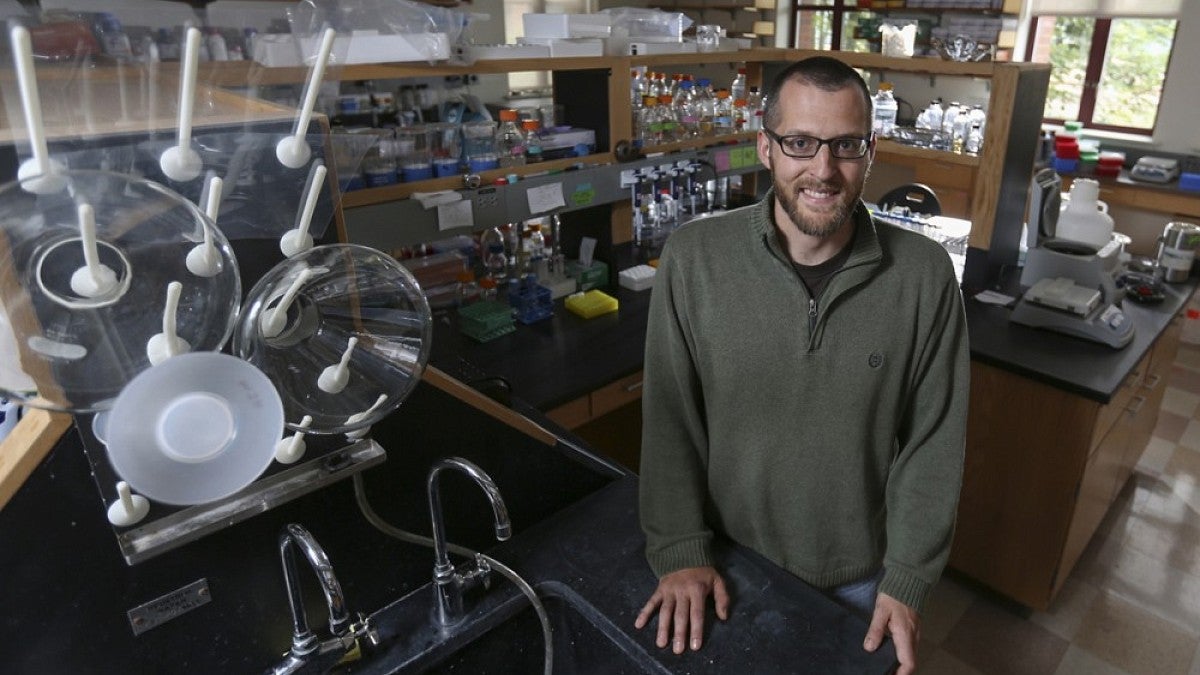The UO's Michael Harms is among 22 early career Pew Biomedical Scholars named by the Pew Charitable Trusts.
An assistant professor in the Department of Chemistry and Biochemistry, Harms more than 600 scientists who have won early career awards from the organization's Pew Scholars Program in the Biomedical Sciences since it began in 1985. Scientists are chosen for their high-risk, high-reward research that can lead to new discoveries in bioscience.
Harms looks at the relationship between the biophysical properties of proteins and their evolution. He currently is focusing on the evolution of calprotectin, a protein that has multiple roles in the human immune response — research that eventually may point to new strategies for designing anti-inflammatory drugs.
“This funding will jumpstart some really cool science,” Harms said. “The immune system is amazingly complicated, but arose from simple, ancient components — we use an evolutionary approach to study the stepwise acquisition of this complexity.”
Harms received a doctorate in molecular biophysics in 2009 from Johns Hopkins University. He joined the UO in 2013 after doing postdoctoral work with Joseph Thornton, now at the University of Chicago. Earlier this year, Harms, along with departmental colleagues Shannon Boettcher and Michael Pluth, was named a Sloan Foundation fellow.
The Pew scholars program provides four years of flexible funding to scholars at the assistant professor level. As a scholar, Harms joins a community that also includes Pew’s Latin American Fellows and Pew-Stewart Scholars for Cancer Research. Scholars and fellows gather annually to share their findings and spur new lines of inquiry that lead to new partnerships and collaborations.
For more details, see the full story on the award at: Harms selected as Pew Scholar in Biomedical Sciences


